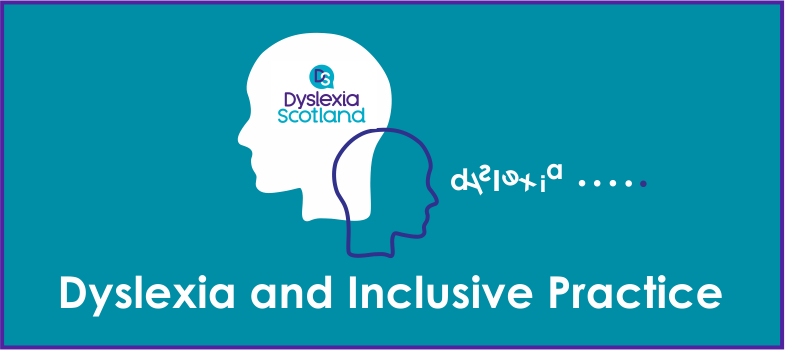1.1. The Scottish context for dyslexia and inclusive practice
Module 1, Section 1 Recap
Module 1 highlighted that Scotland’s education system is designed to be an inclusive one for all children and young people in Scottish schools with or without additional support needs. Our ‘needs led’ system places the learner at the centre and the provision of support is not dependent upon a formal label or identification of need such as dyslexia, autism or a physical disability.
The legislative and policy framework places duties and expectations on schools and local authorities to ensure that they deliver an inclusive education and do not discriminate against those with protected characteristics.
The 2014 Education Scotland report Making Sense: Education for Children and Young People with Dyslexia in Scotland [Tip: hold Ctrl and click a link to open it in a new tab. (Hide tip)] was the outcome of an independent review of education for children and young people who have dyslexia. It was carried out on behalf of the Scottish Government. The report highlighted 5 interlinking recommendations to improve the outcomes of learners with dyslexia, all of which the Scottish Government’s response supported. The Making Sense Working Group is working with stakeholders to support the implementation of the review’s recommendations.
Scotland’s ‘child-centred needs led’ education system has been designed to ensure that the provision of support for a child or young person is not dependent upon them receiving a formal label or identification of need such as autism, dyslexia or a physical disability.
The Scottish vision for inclusive education, which applies to all settings and for all children and young people, is set out below:
‘Inclusive education in Scotland starts from the belief that education is a human right and the foundation for a more just society. An inclusive approach which recognises diversity and holds the ambition that all children and young people are enabled to achieve to their fullest potential is the cornerstone to achieve equity and excellence in education for all of our children and young people.’
Children’s rights and entitlements are fundamental to Scotland’s approaches to inclusive education. It is supported by the legislative framework and key policy drivers including the Getting it right for every child approach, Curriculum for Excellence and the Framework for Professional Standards for teachers. These are underpinned by a set of values aligned to social justice and commitment to inclusive education. This means that inclusive education should be the heart of all areas of educational planning. However UNESCO highlight:
‘The central message is simple: every learner matters and matters equally. The complexity arises, however, when we try to put this message into practice. Implementing this message will likely require changes in thinking and practice at every level of an education system, from classroom teachers and others who provide educational experiences directly, to those responsible for national policy’.
Despite the internationally recognised inclusive legislation and policy framework that is in place to support Scottish education, ensuring inclusion and equality for all learners has been, and continues to be, a complex process. The 2020 independent review ‘Support for Learning: All our Children and All their Potential’ stated
‘There is no fundamental deficit in the principle and policy intention of the Additional Support for Learning legislation and the substantial guidance accompanying it. The challenge is in translating that intention into practice for all our children and young people who face different barriers to their learning across a range of different home and learning environments’.
Select here to download the Summary publication of ‘Support for Learning: All our Children and All their Potential’
Activity 2
In your Reflective Log, note down some of the factors which you feel contribute towards the complex process of ensuring inclusion and equity for all learners.
Click ‘Reveal discussion’ to see some contributing factors which we thought of. Do note that this list is not exhaustive.
Discussion
Local authority, school/establishment/ management and practitioners’ understanding of:
- legislative requirements and policy drivers
- their duties, values and standards of their professional body, for example the GTCS standards for registration
- appropriate planning and implementation for curriculum accessibility and flexibility when this is required
- Local authority/school/establishment ethos supporting inclusion and equality
- Opportunities for children and young people to actively participate and share their views
- Partnership working
- Effective self-evaluation and reflection
- Wider school community participation
1. Scottish Education

